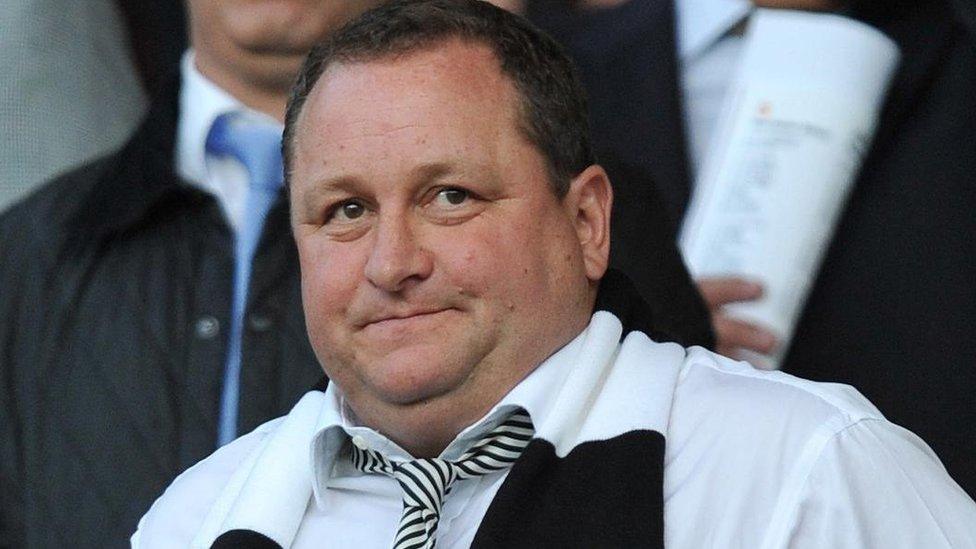Sports Direct chairman Keith Hellawell's controversial career
- Published
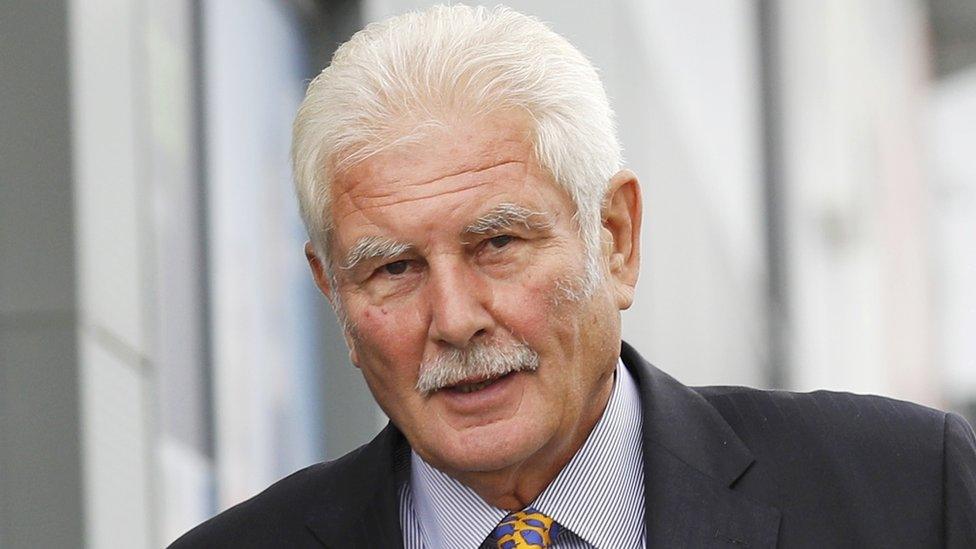
Keith Hellawell became chairman of Sports Direct in 2009
Keith Hellawell, the under-fire Sports Direct chairman, has had a long and varied career clouded by controversy.
The 74-year-old, born near Huddersfield, survived a revolt by independent investors after receiving the support of billionaire owner Mike Ashley who said he had his "full backing".
Ashley has previously spoken of his belief that Hellawell is the right man to run Sports Direct with him, saying: "He knows my strengths, he knows my weaknesses."
Yet independent investors had been urged to vote against Hellawell's re-election because of a "catalogue of governance and operational failures" under his watch.
Many of these were acknowledged in a September 2016 report commissioned by the firm, external, following MPs saying that its treatment of staff was closer to "that of a Victorian workhouse than that of a modern, reputable High Street retailer".
Hellawell has faced pressure in other high-profile roles as the government's "drugs czar" and the chief constable of West Yorkshire Police.
He started a 36-year career in the police at the age of 20 after beginning his working life as a coal miner once he left school at the age of 15.
He became Britain's youngest sergeant aged 23 and progressed through the ranks to become assistant chief constable of West Yorkshire in 1983.
While in that role, he was criticised for his tough treatment of fellow officers. He shut police station bars and sacked some deskbound senior officers so he could appoint more to go on the beat instead.
He moved up to chief constable in 1993 after a spell in a similar role in Cleveland, where he won praise for the way he dealt with allegations of sexual abuse in the area as families were separated after controversial tests.
Queen's Medal
In between, he served in most departments and was awarded the Queen's Police Medal for Distinguished Service in 1990.
After the arrest of the Yorkshire Ripper, Peter Sutcliffe, in the 1980s, Hellawell was moved on to the case and managed to extract more confessions of attempted murder from him.
However, he also attracted criticism after spontaneously giving Sutcliffe a Christmas card, although he told the Sunday Times in 2000: "It was just part of the rapport thing to get him to open up."
During the 1960s, he launched one of the first dedicated drugs squads, while during his police career he also found time to study for a degree in social policy and take another one in law.
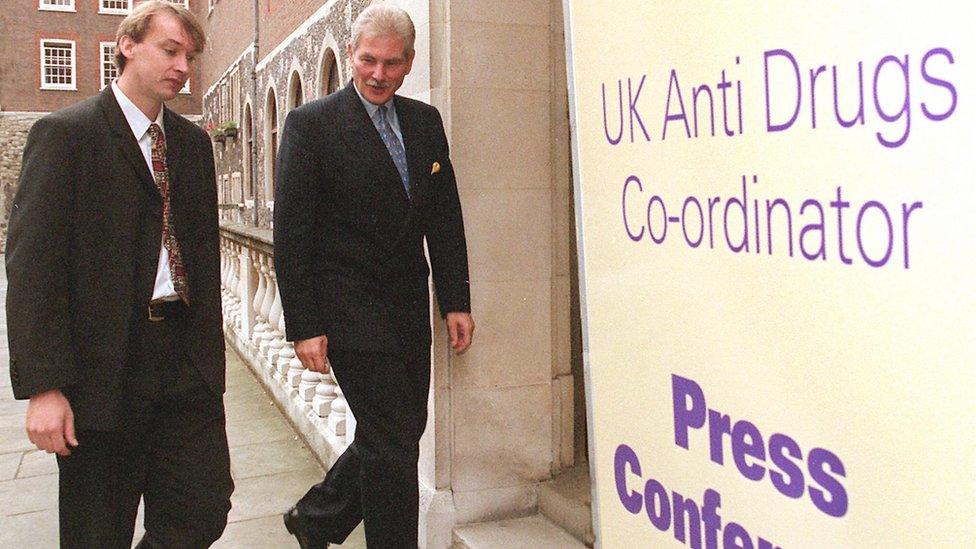
Keith Hellawell (r) attending a press conference in 1997 with Michael Trace, director of the Rehabilitation for Addicted Prisoners' Trust
In 1998, he was appointed as Tony Blair's government's new UK anti-drugs co-ordinator - also known as "drugs czar" - with a remit of dealing with the problems of drug use and reducing the amount coming into the UK.
Even that move was criticised because during his time in West Yorkshire he had operated a policy of widespread cautioning of cannabis-takers instead of automatically prosecuting them.
Role changed
Two years into the job he called for police to stop pursuing cannabis users so rigorously in an attempt to focus on drugs which cause "the major harm", such as heroin and cocaine.
However, he told the BBC he did not support "legalisation nor decriminalisation" of cannabis.
In 2001, his role was changed to make him a part-time adviser on international drug issues after the new Home Secretary, David Blunkett, took over his responsibilities.
He won praise for his work in the role from Mr Blunkett, who said: "Keith has done an excellent job in helping lay the foundations for the future."
A year later and Hellawell was gone - announcing his resignation on BBC Radio 4's Today programme, external over Mr Blunkett's decision to downgrade cannabis from a Class B to a Class C drug.
In May 2006, he became chairman of pharmaceuticals business Goldshield, which had been one of five companies charged by the Serious Fraud Office with conspiracy to defraud a month earlier. However, the case collapsed in late 2008.
The following year, Hellawell became chairman of Sports Direct - replacing David Richardson who had quit the role two years earlier.
Although the company's shares soared in recent years, 2016 saw a downturn with the firm dropping out of the FTSE 100 in March.
The company was also accused of exploiting its workers, many of whom are employed on zero-hours contracts, although Sports Direct has now pledged to abolish these terms for its directly employed, casual retail staff.
And at a parliamentary inquiry in 2015, Hellawell faced a barrage of criticism from MPs, external over his lack of knowledge about the collapse of one of Sports Direct's subsidiaries.
- Published7 September 2016
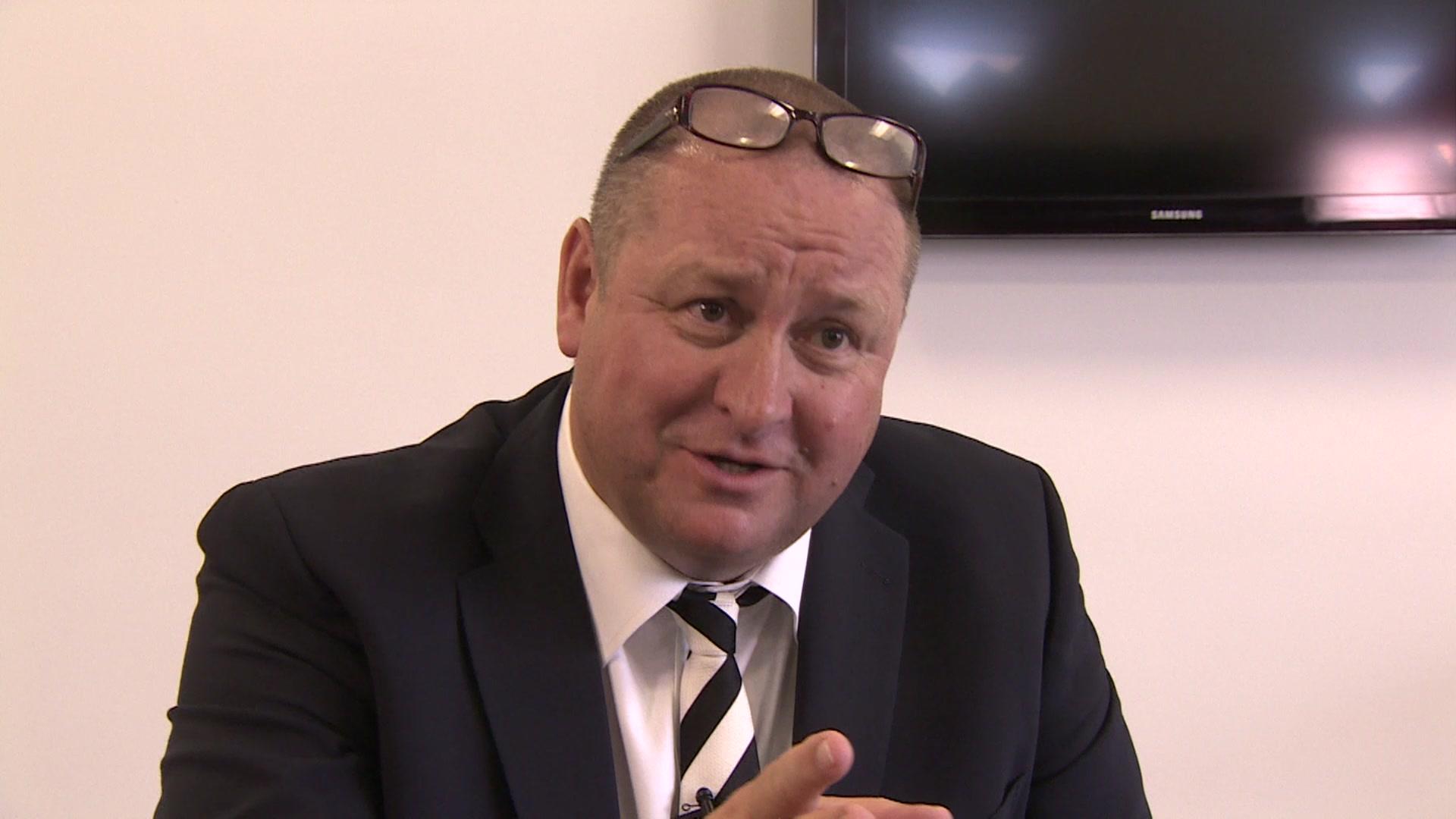
- Published7 September 2016
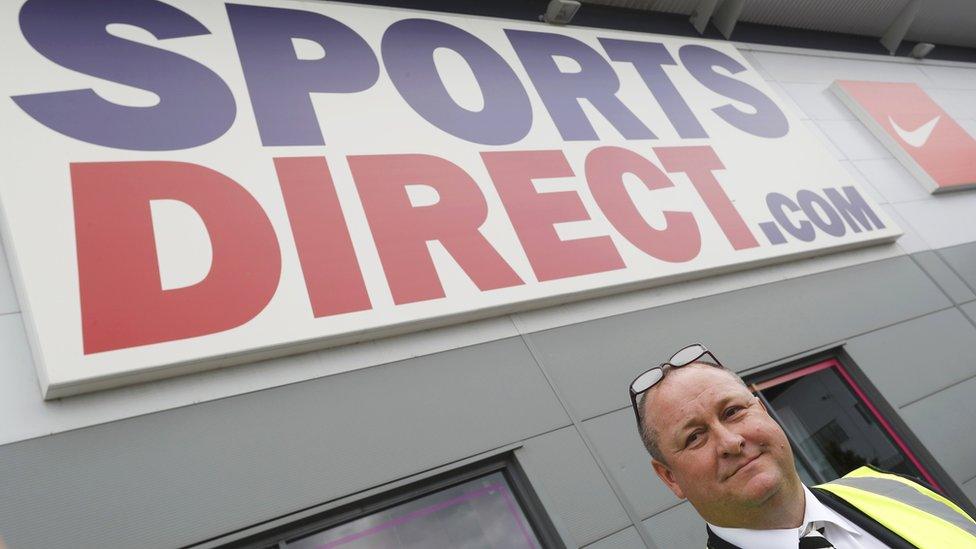
- Published6 September 2016
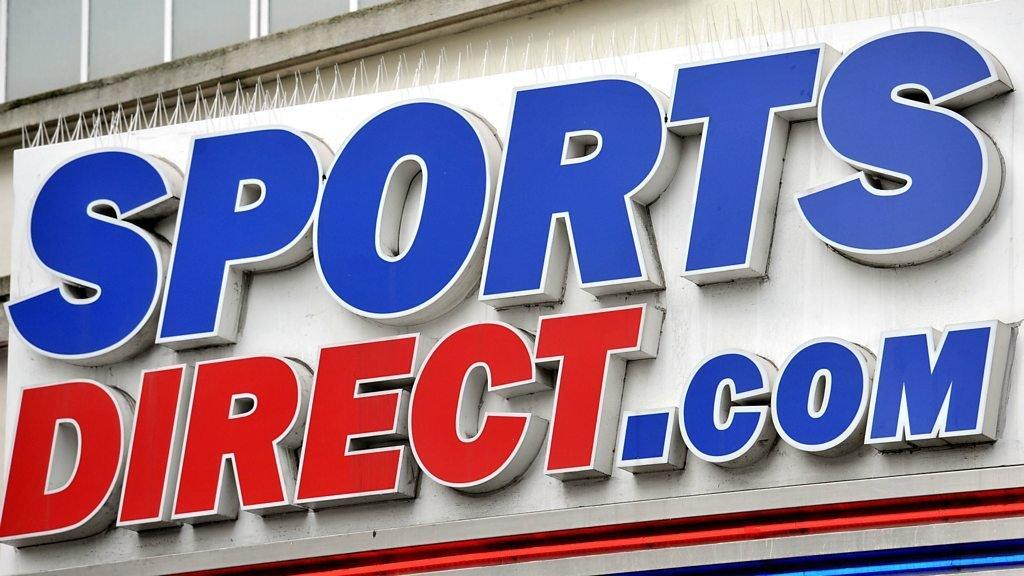
- Published6 September 2016
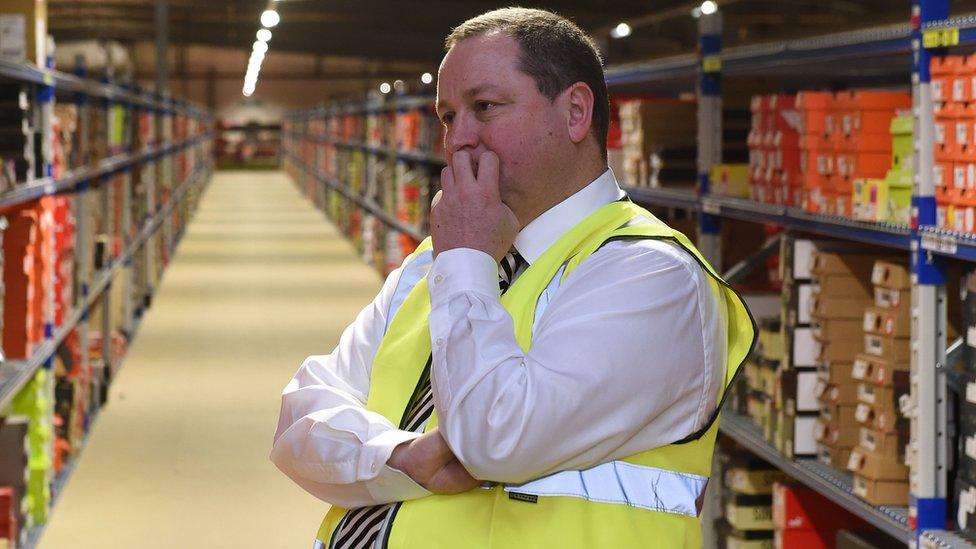
- Published20 September 2022
